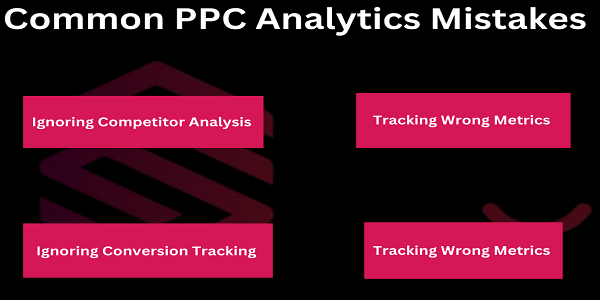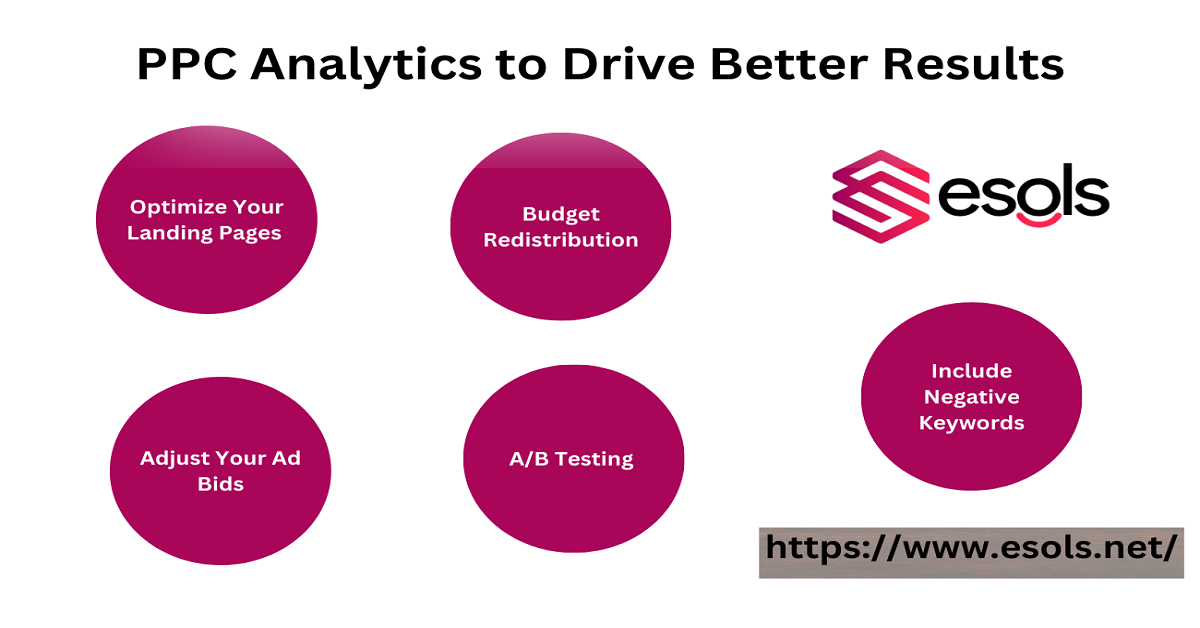PPC (Pay-per-click) advertising is a great strategy to drive quick traffic and generate massive sales. More than 50% high intent searches result in the audience clicking on PPC ads. However, a successful campaign requires constant monitoring to achieve positive outcomes. PPC Analytics can help you find out about the PPC campaign progress and optimize it. How to use analytics to improve PPC campaigns? This article will disclose interesting information about the topic.
What are PPC analytics?
PPC analytics or analysis is a practice of tracking your PPC ad campaign progress and adjusting the problems. Moreover, it includes monitoring important metrics such as
- Clicks
- Impressions
- Click Through Rate (CTR)
- Quality Score
- Conversion Rate Optimization
- Cost Per Click (CPC)
Apart from that, your PPC analysis should include the following
- User Behavior: How many targeted segments such as (clicking or converting) are engaging with the ad campaign?
- Competitors Analysis: Types of PPC campaigns your competitors are running, what keywords are they using to get clicks?
- Performance Outcomes: Is the PPC campaign successfully delivering the expected outcomes?
Using Analytics to Drive Better Results
Before using analytics to get better results, you need to track the right metrics. Here are some expert tips to optimize your PPC strategy.
Budget Redistribution
Sometimes your ad campaign fails to generate positive ROI. In such cases, you need to reallocate the budget to high-performing ads. Closely monitor your ad campaigns and separate the top ones from campaigns not performing according to your expectations.
Optimize them again and track their progress. If you are not getting the expected results. It means you should distribute the budget to ad groups performing very well. This will help you to achieve sustainable growth.
A/B Testing
Your ad copy has a key role in grabbing user’s attention and increasing conversions. Therefore, verify your copy and see whether it is explaining everything about your product. Optimize your copy by incorporating new keywords in the title meta description and the content body.
In addition, conduct thorough A/B testing to find out the best version amongst the both versions. Then allocate your budget on the ads that have passed the testing method. This is a recommended approach and you will get results from it.
Include Negative Keywords
As the name suggests, negative keywords allow you to remove specific search terms from your campaigns. For example, you are running a cricket bat shop and you don’t want yourself to appear in toy cricket, so you will include this type of negative keywords into your campaign.
It will ensure that your ad will not appear when someone searches for a toy cricket bat. Remember, your selection of negative keywords starts by choosing the relevant keywords against which you are setting up your ad.
Constantly check your search queries to find out which phrases the audience is using to search for products you are selling. It will help you compile a list of top-performing and negative keywords.
Optimize Your Landing Pages
Another reason for the low conversion rate is your landing pages. Your website landing pages should relate to the product ad copy and help the users to navigate through other pages. Make sure your landing pages should have a clear Call to Action.
Use website analytics to see at what point the user left your website. Some experts combine ad and analytics to monitor user behavior. A key tip for every seller is to avoid including too much information on the landing pages.
When there is excessive information about a product in the form of a paragraph, it only confuses the user. Instead, use bullet points to explain your product benefits and include necessary details only. Exaggerating about your product will only result in losing a potential customer.
Adjust Your Ad Bids
Are you utilizing the smart ad bid strategy when setting up the PPC ad campaigns? Its time to switch on manual ad mode to get complete control over the ad strategy. It will help you to optimize your ad by adjusting the bid amount whenever you want.
Bid adjustment is a great tactic for businesses to increase clicks and drive more traffic. However, it requires deep research and knowledge about PPC Campaigns.
Common PPC Analytics Mistakes You Should Avoid
As mentioned above, you need to have appropriate knowledge and expertise to perform PPC analysis. A slight mistake can ruin your entire hard work, below are the mistakes you need to avoid.

Tracking Wrong Metrics
Your PPC campaign success relies on tracking the metrics and adjusting the campaign. However, going after the wrong metrics will only result in lower profit. Therefore, pay attention to the KPIs that align with your goals.
For instance, awareness ads target audience reach and impression. However, clicks and conversions are ideal but they are not appropriate ones to track.
Ignoring Conversion Tracking
Neglecting conversion tracking is a common mistake often ad experts make. When you ignore this metric, you will struggle to find the connection between impression clicks and conversions. Therefore, set up conversion tracking before launching Google or YouTube.
Depending on the platform, you may need to install a pixel, configure a tag with Google Tag Manager, or set up a conversions application programming interface (API).
Ignoring Competitor Analysis
Overlooking competitor analysis is the biggest mistake. Without knowing the keywords your competitor is using, you may struggle to get a single sale. Therefore, check what keywords they are using and then include them in your strategy.
Conclusion:
PPC analytics is a powerful tool that helps businesses optimize their campaigns and achieve better results. By carefully monitoring and analyzing key metrics, businesses can adjust their strategies, focus on the most effective keywords, and allocate budgets more efficiently.
Continuous tracking and regular testing lead to more informed decisions, ultimately boosting ROI and campaign performance. Staying proactive and using PPC analytics effectively ensures that your campaigns remain competitive and aligned with your business goals.
Read More : How to Integrate PPC with Your Social Media Marketing Efforts
FAQs:
PPC analytics involves tracking and analyzing data from your pay-per-click campaigns to optimize performance.
It helps you understand campaign effectiveness, identify areas for improvement, and enhance your ROI.
Regularly, at least weekly, to ensure your campaigns are performing optimally and to make timely adjustments.
Metrics such as CTR (Click-Through Rate), CPC (Cost Per Click), conversion rate, and ROI are essential to monitoring.

Smith
Welcome to my blog! As an Digital Marketing expert with over 15 years of experience, I’ve witnessed the transformative power of search engine optimization from the very beginning of my career. In this blog series, I’ll delve into the crucial role SEO , marketing plays in the success of small businesses. Join me on this journey to uncover how leveraging data-driven insights and innovative SEO techniques can propel your small business to new heights, attract a broader audience, and drive sustainable growth in the digital age. Whether you’re a seasoned entrepreneur or just starting out, you’ll find valuable insights and practical tips to enhance your Digital Marketing strategies.


